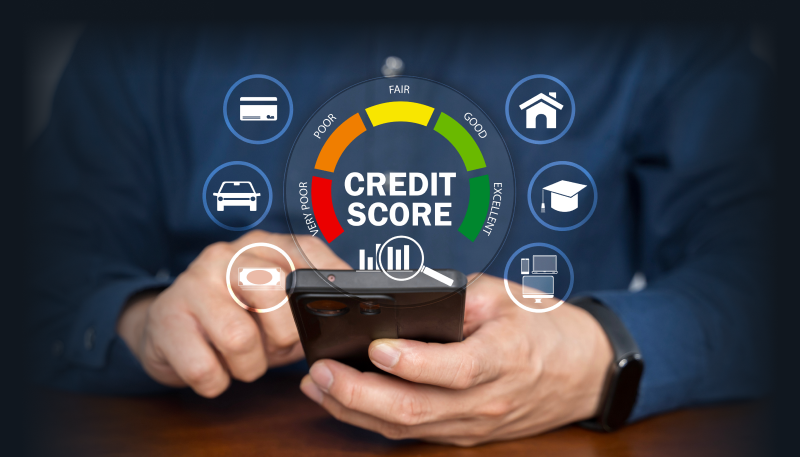When unexpected expenses arise—whether it’s a medical emergency, urgent home repair, or sudden car breakdown—emergency loans can provide a much-needed financial lifeline. But while these loans offer quick access to cash, many borrowers worry about how taking out such loans might impact their credit score. Understanding the relationship between emergency loans and your credit score is essential to managing your financial health effectively.
Key Takeaway:
Emergency loans can impact your credit score both positively and negatively, depending on how you manage them. Timely payments and responsible borrowing may improve your credit, while missed payments or default can severely damage it.
What Is an Emergency Loan?
An emergency loan is a type of short-term financing designed to help borrowers cover urgent expenses. These loans often have quicker approval processes and faster funding times compared to traditional loans, making them a popular choice in times of financial distress. Emergency loans can come in various forms such as payday loans, personal loans, title loans, or even credit card cash advances.
How Is a Credit Score Calculated?
Before diving into how emergency loans affect your credit score, it’s important to understand what a credit score is and how it’s calculated. A credit score is a numerical representation of your creditworthiness, typically ranging from 300 to 850. It is calculated based on five main factors:
- Payment History (35%) – Have you paid your bills on time?
- Amounts Owed (30%) – How much debt do you currently have?
- Length of Credit History (15%) – How long have your credit accounts been open?
- New Credit (10%) – Have you recently applied for or opened new credit accounts?
- Credit Mix (10%) – Do you have a variety of credit types?
Each of these components plays a role in determining your overall credit score.
How Do Emergency Loans Affect Your Credit Score?
1. Impact of Loan Application on Credit Score
When you apply for an emergency loan, lenders often perform a hard inquiry on your credit report to evaluate your creditworthiness. This hard inquiry can lower your credit score slightly, usually by a few points, and this effect may last for about one year. However, a single hard inquiry typically doesn’t cause a major drop in your score, especially if your credit history is solid.
Hard Inquiry vs. Soft Inquiry
- Hard Inquiry: Occurs when a lender checks your credit to make a lending decision; affects credit score.
- Soft Inquiry: Occurs during pre-approval or personal checks; does not affect credit score.
2. Loan Approval and Credit Report
Once approved, your emergency loan will be reported to the credit bureaus and show up as a new account on your credit report. This can impact your credit score in several ways:
- Increase in Total Debt: The loan amount increases your total debt balance, which could affect your credit utilization ratio negatively.
- New Account: Opening a new loan lowers your average account age, which can temporarily reduce your score.
- Credit Mix: Adding a personal loan can diversify your credit mix and potentially improve your score over time.
3. Timely Repayment Builds Positive Credit History
One of the most important factors influencing your credit score is your payment history. Making timely payments on your emergency loan can help establish or reinforce a positive credit history. Consistent, on-time payments demonstrate responsible credit behavior and may improve your score.
4. Missed Payments and Defaults Cause Damage
On the flip side, missing payments or defaulting on an emergency loan can cause significant damage to your credit score. Late payments are reported to credit bureaus and remain on your credit report for up to seven years, lowering your creditworthiness and making it harder to obtain future credit.
5. Refinancing or Paying Off the Loan Early
Paying off your emergency loan early or refinancing it through a better loan can improve your credit health by reducing your debt burden and improving your credit utilization ratio. However, some lenders may charge prepayment penalties, so it’s essential to check your loan terms.
Types of Emergency Loans and Their Credit Implications

Payday Loans
Payday loans are short-term, high-interest loans typically due on your next payday. Many payday lenders do not report your payment activity to credit bureaus, meaning payday loans may not directly affect your credit score. However, if you default and the debt is sent to collections, that can severely harm your credit.
Personal Loans
Personal loans for emergencies are usually installment loans with fixed terms and monthly payments. These loans are generally reported to credit bureaus, so your payment history will directly impact your credit score.
Title Loans
Title loans require collateral (like your car title). These are usually high-risk and high-interest loans. Like payday loans, they may not always be reported unless you default. Defaulting can result in repossession and credit damage.
Credit Card Cash Advances
Taking a cash advance on your credit card to cover emergencies can impact your credit utilization ratio, which affects your score. Since cash advances usually come with high fees and interest rates, managing repayment carefully is crucial to protect your credit.
How to Manage Emergency Loans to Protect Your Credit Score
1. Only Borrow What You Can Afford
Before taking an emergency loan, assess your ability to repay the amount promptly. Borrowing more than you can handle can lead to missed payments and credit damage.
2. Understand Loan Terms

Read the fine print carefully. Know your interest rates, fees, repayment schedule, and any penalties.
3. Make Payments on Time
Set up automatic payments or reminders to avoid late payments.
4. Communicate with Lenders
If you’re struggling to make payments, contact your lender immediately. Some lenders offer hardship programs or flexible repayment options.
5. Avoid Using Multiple Emergency Loans
Relying on multiple loans simultaneously can spiral into debt and hurt your credit.
What Are the Risks and Benefits of Taking an Emergency Loan?
This article would explore the advantages and disadvantages of emergency loans in depth. On the benefits side, it would cover quick access to funds, the ability to cover unexpected expenses, and potential credit-building opportunities when repaid responsibly. On the risks side, it would discuss high interest rates, the potential for debt cycles, negative impacts on credit if payments are missed, and the importance of understanding loan terms. The article could include real-life examples, comparison with other borrowing options, and expert advice on mitigating risks.
How to Use Emergency Loans Responsibly to Improve Your Financial Health
Description:
This piece would focus on strategies and best practices for responsibly using emergency loans. It would detail how to evaluate your financial situation before borrowing, how to budget loan repayments, and how to communicate with lenders if you encounter difficulties. The article could also explain how emergency loans can fit into a larger personal finance plan, such as managing cash flow, building an emergency fund, and improving credit scores through on-time payments.
What Alternatives Exist to Emergency Loans and When Should You Consider Them?
Description:
Emergency loans aren’t the only option during financial crises. This article would explore alternatives like credit cards, borrowing from family/friends, community assistance programs, negotiating payment plans with creditors, or using savings. It would analyze the pros and cons of each alternative compared to emergency loans, providing guidance on when each is appropriate. This helps readers make informed decisions tailored to their unique situations.
How Does Loan Default Affect Your Credit Score and Financial Future?
Description:
Defaulting on an emergency loan can have serious long-term consequences. This article would break down what loan default means, how it’s reported to credit bureaus, and the cascading effects on credit scores, loan eligibility, insurance premiums, and even employment opportunities. It would also cover how long defaults stay on credit reports, options for credit repair, and steps to avoid default.
The Role of Credit Scores in Emergency Loan Approval: What Lenders Look For
Description:
Here, you’d explain how lenders evaluate credit scores during the emergency loan approval process. The article would discuss credit score thresholds, the importance of payment history, debt-to-income ratios, and other underwriting factors. It could also cover how borrowers with low credit scores can improve their chances of approval, including secured loan options and co-signers.
How to Rebuild Your Credit After Taking an Emergency Loan
Description:
For borrowers who have experienced credit damage due to emergency loans, this article would offer a roadmap to recovery. Topics would include reviewing credit reports for errors, negotiating with lenders, paying down debt strategically, using secured credit cards, and building positive payment history. It would emphasize patience and consistent financial habits.
Are Payday Loans Worth It? Understanding Their Impact on Credit and Finances

Description:
Payday loans are controversial because of their high costs and short repayment terms. This article would delve into how payday loans work, whether or not they impact credit scores, and the risks of falling into a payday loan debt cycle. It would compare payday loans with other short-term financing options and provide advice on avoiding predatory lending practices.
How Emergency Loans Affect Different Types of Credit Scores (FICO vs. VantageScore)
Description:
Many people don’t realize there are multiple credit scoring models. This article would explain the differences between FICO and VantageScore, how each model weighs emergency loans and payment history, and what borrowers should know about these variations. It could also address how different lenders may use different scores for decisions.
How to Prepare Financially to Avoid Needing Emergency Loans
Description:
Prevention is better than cure. This comprehensive article would guide readers on building a financial safety net, including creating an emergency savings fund, budgeting effectively, reducing debt, and protecting income with insurance. It would stress long-term habits that reduce the likelihood of needing emergency loans.
How Do Emergency Loans Impact Your Credit Score in Different Countries?
Credit systems vary globally. This article would compare how emergency loans affect credit scores in major markets like the U.S., Canada, UK, Australia, and emerging economies. It would highlight differences in credit reporting, lending practices, and regulatory protections, helping international readers understand their local context.
Conclusion
Emergency loans can be a valuable resource during times of Financial distress, offering quick access to funds when you need them most. However, their effect on your credit score depends largely on how you manage the loan. Responsible borrowing, timely repayments, and understanding your loan terms can help maintain or even improve your credit score. Conversely, missed payments, defaults, and excessive borrowing can cause lasting damage to your credit profile. By staying informed and proactive, you can navigate emergency loans without jeopardizing your financial future.
Also Read : What Are the Different Types of Mortgage Loans Available?
FAQs
1. Do all emergency loans affect my credit score?
No, not all emergency loans affect your credit score. Some payday lenders don’t report to credit bureaus, but defaults and collections related to these loans can impact your credit.
2. Will applying for an emergency loan lower my credit score?
Applying for a loan usually results in a hard inquiry, which can lower your score slightly, but the impact is generally minor and temporary.
3. How quickly do emergency loans show up on my credit report?
Typically, lenders report to credit bureaus monthly, so new loans can appear on your credit report within 30 to 60 days.
4. Can paying off an emergency loan early help my credit score?
Yes, paying off loans early can reduce your debt and improve your credit utilization ratio, positively impacting your credit score.
5. What happens if I miss a payment on my emergency loan?
Missed payments can be reported to credit bureaus and will negatively affect your credit score, sometimes leading to late fees and increased interest.
6. Are emergency loans more expensive than regular loans?
Yes, emergency loans often come with higher interest rates and fees due to their short-term nature and risk level.
7. Can I negotiate with lenders if I’m struggling to repay an emergency loan?
Yes, many lenders offer hardship programs or modified repayment plans if you communicate your financial difficulties early.



